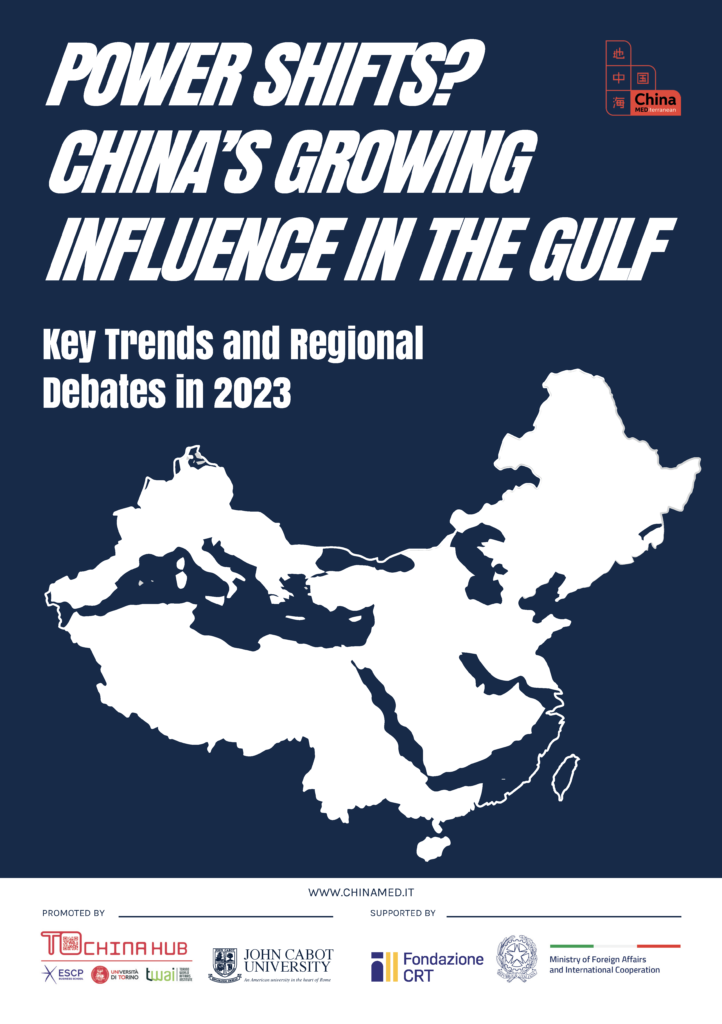
The ongoing development of Sino-Gulf relations, driven by China’s deepening ties with the states of the Gulf Cooperation Council (GCC), represents a significant shift in the Middle East’s geopolitical landscape. This evolving relationship reflects broader global power realignments and signals a departure from traditional alliance patterns in the region. Through strategic partnerships, economic engagement, and diplomatic initiatives, particularly the Belt and Road Initiative (BRI), China has emerged as a pivotal actor in the Middle East, offering GCC states new avenues for economic diversification and strategic autonomy.
China’s role in facilitating the Saudi-Iranian rapprochement is a emblematic of its growing influence, with it presenting itself as a neutral and constructive force capable of fostering regional stability. However, this diplomatic approach came under scrutiny in the aftermath of the Hamas-led attack on Israel on October 7, with its limitations having become more evident. Media narratives from Iran, Iraq, Israel, Saudi Arabia, the United Arab Emirates (UAE), and China provide a nuanced understanding of these dynamics, revealing the complexities of Sino-Gulf relations and their implications for both regional and global politics.
Iranian perspectives were marked by anxiety over Tehran’s growing strategic dependence on China amidst Western sanctions, coupled with concerns over being marginalized as Beijing strengthens ties across the Gulf. Despite valuing the economic lifeline provided by China, Iran remains cautious, reflecting its precarious position in regional and global politics.
Iraqi narratives focused on the opportunities for economic development provided by the “oil-for-reconstruction” agreement with China, as growing frustration mounted over the perceived limits of this partnership. The discussions suggest a desire for a more empowering relationship that transcends immediate economic benefits and that contributes to Iraq’s long-term stability and development.
Israeli media initially viewed engagement with China pragmatically, attempting to safeguard economic and technological cooperation despite American pressure. However, Beijing’s perceived pro-Palestine neutrality following the Hamas-led surprise attack led to a narrative shift, as the Israeli press discussed security concerns and the limits of economic engagement without aligned security interests.
In Saudi Arabia and the UAE, the strategic pivot toward China was celebrated for offering economic diversification and greater foreign policy autonomy. The Saudi-Iranian rapprochement facilitated by China was seen as a diplomatic victory, signaling a shift toward a more balanced and multipolar regional order. Despite recognizing China’s diplomatic limits, both countries seem content with its current actions, as they lay a solid foundation for the further development of relations. China’s media narrative, emphasizing peace, cooperation, and mutual economic benefits, portrayed Chinese engagement as a benign alternative to the interventionist approaches of the West. Beijing’s role in the Saudi-Iranian rapprochement and its response to the Hamas-led attack highlighted its ambition as a global player, yet the Chinese press also acknowledged the challenges and limits of China’s diplomatic endeavors.
The Sino-Gulf relationship, characterized by cautious optimism and strategic hedging, reflects the transition toward a multipolar world order, wherein regional states are able navigate new dynamics in international relations. These relationships, while offering economic opportunities and strategic diversification, also reveal tensions and challenges, including security concerns and geopolitical rivalries.
The evolving dynamics demand nuanced diplomacy and strategic foresight, as Gulf states and China balance economic interests with geopolitical realities. A comprehensive understanding of these interactions, informed by diverse media narratives, is crucial for policymakers, scholars, and observers to effectively navigate the complexities of contemporary international relations.
Download

Copyright © 2025. Torino World Affairs Institute All rights reserved
